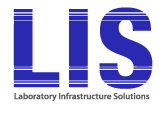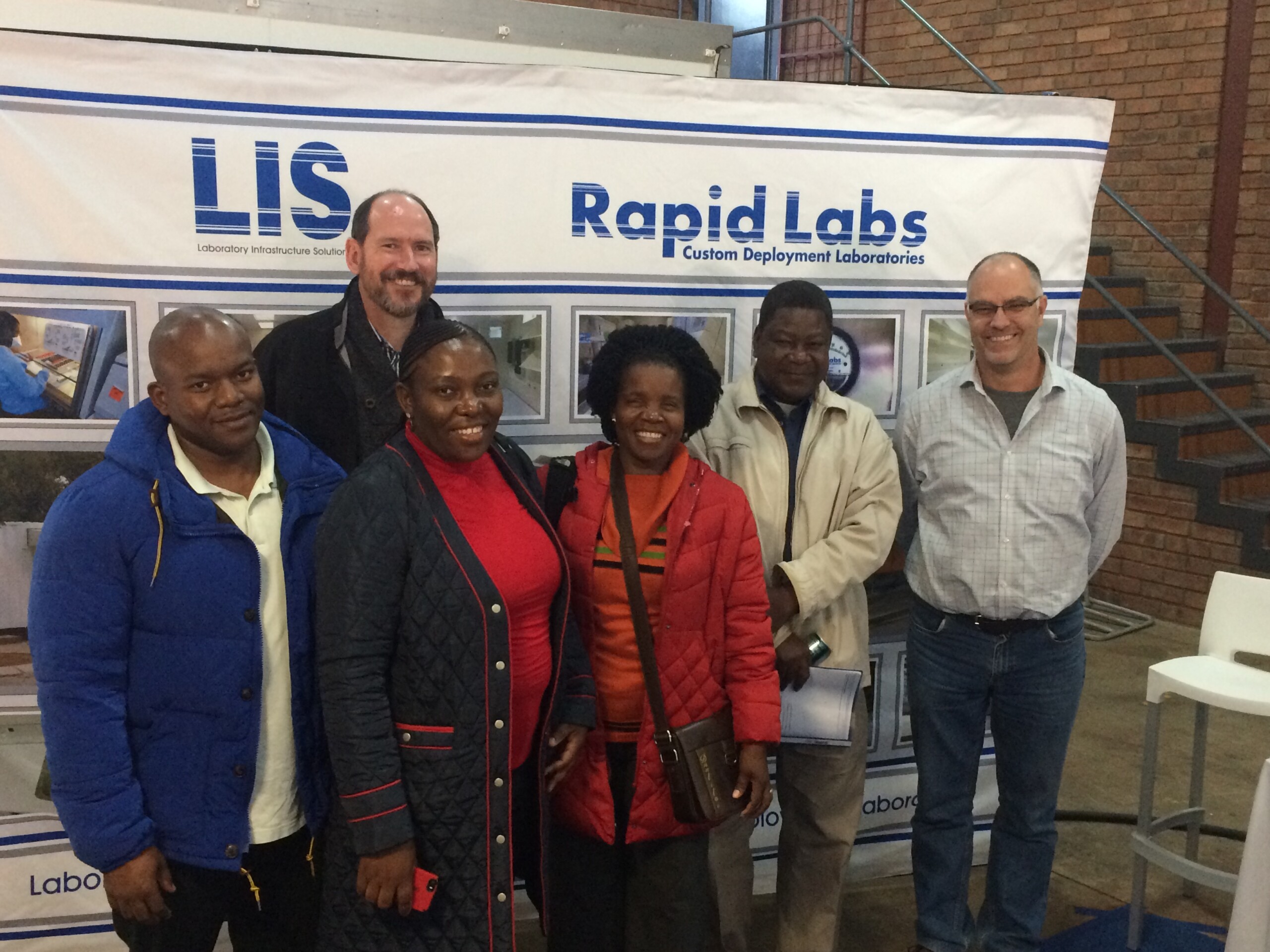Scaling Biosafety in Africa: How LIS-Labs Is Bridging the Gap Between Global Funding and Local Implementation
Case Study: BSL-3 Lab Deployment in Botswana — Backed by USAID and the US Embassy, Gaborone
In partnership with USAID and the US Embassy in Botswana, LIS-Labs successfully designed, manufactured, and deployed a fully containerized BSL-3 laboratory tailored to the needs of a Botswana-based public health institute. This initiative showcases how international collaboration can address biosafety needs in Africa with speed, precision, and local adaptability.

Exterior view of the containerized BSL-3 lab deployed in Botswana by LIS-Labs.
From Requirements to Reality:
LIS-Labs began with detailed consultations to align technical compliance with real-world functionality. “One of our priorities was to ensure that there were no surprises once engineering began,” said Johriaan de Beer, LIS-Labs project lead. An initial planning session was held with LIS-Labs engineers and the end user in Botswana.
Key steps:
– Conducting structured consultations with the end user to align technical requirements with local functionality
– Drafting a comprehensive User Requirements Specification (URS)
– Mapping all features to WHO and CDC BSL-3 standards
– Collaborative review and sign-off with the end user
– Conducting Factory Acceptance Testing (FAT) after manufacturing, with the end user invited to attend and verify that the lab met all specifications prior to shipment.

LIS-labs team with Botswana end-user delegation during factory acceptance testing.
Built for Purpose, Built for Africa: Optimizing Workflow
Interior layout was guided by diagnostic protocols and biosafety flow, with:
Smart zoning to prevent cross-contamination
Interior layout of the BSL-3 lab showing diagnostic work zones.
Ergonomic placement of instruments and workspaces
Equipment Selection in consultation with the end user
Robust design for voltage instability
Clear space for training and maintenance
Climate-ready engineering to handle Botswana’s harsh environment, the lab featured HVAC rated for up to 45°C
Dual-stage filtration and pressurized entry vestibules
Remote monitoring of air pressure, temperature, and power supply

Ergonomically configured laboratory equipment.
Site Setup and Power Realities
While the lab was delivered pre-validated, site preparation remained a local responsibility. Challenges included:
Uneven utility infrastructure
A generator that failed to meet startup power demand
Site work during generator installation phase.
“The installed generator struggled with simultaneous loads,” noted Johannes Cronje, LIS-Labs engineer.
Looking forward: Future designs should incorporate renewable energy sources, such as solar with battery backup, to mitigate against grid instability and generator dependency; size generators conservatively; commission systems with certified electrical contractors
and; engage in early risk planning.
Fast Deployment, Long-Term Monitoring
Deployment took just one week. Deployment included:
Site placement and utility connection
Testing of HVAC, BSCs, alarms, and air handling
Environmental calibration under real-world conditions
LIS-Labs engineers conducting final system tests during installation.
Remote Monitoring
All LIS-Labs systems include secure cloud-based monitoring. “It’s a critical safeguard in resource-limited locations,” said Johannes Cronje, LIS-Labs engineer:
– Track HVAC, airflow, and temperature in real time
– Get alerts for abnormal events
– Allow remote engineering diagnostics

Remote monitoring system display.
Training for Independent Operation
Post-commissioning, LIS-Labs delivered hands-on training to local staff:
Operational routines and biosafety protocols
Maintenance of HVAC and containment systems
Use of user-specified lab instruments
On-site training with Botswana health staff on lab operation and safety protocols.

Microscopy training in progress.
Conclusion: A Proven Model for Africa
This deployment affirms LIS-Labs’ role as a trusted partner in building real-world BSL capacity across Africa.
“Global institutions fund the vision — African partners implement it — LIS-Labs delivers the bridge in between.”
As public health demands continue to grow, LIS-Labs offers a scalable, field-tested approach to delivering biosafety infrastructure where it’s needed most.
📩 Ready to deploy BSL capacity in Africa?Contact LIS-Labs to learn how we can support your next project — from planning to training and beyond.


